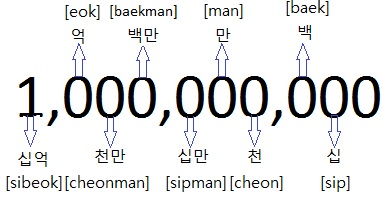Spacing in Korean is basically not so difficult to understand, but it is still very different from English. Independent words can be written separately (with a space between 2 words), but there are cases in which you should NOT have a space between 2 words.
The basic word that you will need to learn “anything, anyone, anything” is 아무 [a-mu].
아무 [a-mu] basically means “any” and it HAS TO be used along with other nouns. And when it is used in a negative context, it means “no” + noun.
- Positive Sentences
For positive sentences, you add -나 [-na] at the end of the word.
1. 아무나 [a-mu-na] = anybody, doesn’t matter who, anyone
E.g: 아무나 올 수 있어요. [a-mu-na ol su i-sseo-yo.] = Anybody can come.
2. 아무거나 [a-mu-geo-na] = anything, doesn’t matter what
E.g: 아무거나 주세요. [a-mu-geo-na ju-se-yo.] = Give me just anything.
(Originally 아무거나 comes from 아무 + 것이나 [amu geo-si-na]. 것 [geot] means “thing”.)
3. 아무데나 [a-mu-de-na] = anywhere, any place
E.g: 아무데나 좋아요. [a-mu-de-na jo-a-yo.] = Any place is good.
(Originally 데 [de] means “place” or “spot”.)
1. 오빠~ 오랜만이에요! 잘지냈어요??[o-p'a~ o-raen-ma-ni-e-yo! jal-ji-nea-sseo-yo??]: bro~ it's been a long time! How are you?? cr: monic_cho
2. 지금 뭐해? 안자요? [ji-geum mwo-hae? an-ja-yo?]: What are you doing now?Not going to sleep? cr:monic_cho
3. 밥 먹었어? 누나랑 같이 먹을래? [bap meo-geo-s'eo? nu-na-rang gat-chi meo-geul-lae?]: Did you eat? Do you want to eat with noona? cr: Joonivy
1. ~네요 [~neyo]
This concluding sentence usually use to declare the quick and spontaneous reaction from the speaker. It like the speaker feel an unexpected surprise or realization. ~네요’s concluding just use to a statement, and maybe it means like “Oh, I understand/realize that...”. Which is in inonesian it likes “Wah, ternyata....”
a. Postposition
Postpositions consist of:
1. ‘에’ (e) which signifies ‘direction’ or ‘destination’
e.g. 나는 한국에 가고 싶어요.
[naneun hanguk-e kagosipeoyo.]
I want to go to South Korea.
우리 엄마는 집에 있어요.
[Uri eommaneun jib-e isseoyo.]
My mother is at home.
What = 무엇 (mueoseul) or 뭐 (mwo)
Where = 어디서 (eodiseo)
Who = 누가 (nuga) or 누구 (nugu)
When = 언제 (eonje)
Why = 왜 (wae)
How = 어떻게 (eotteoke)
Factor of finishing sentence 아요, 어요, 여요, 이에요
1. 아요 use on a verb or an adjective that have vocal like ㅏ, ㅗ.
Ex: 가다 +아요 = 가요 means go, 받다 + 아요 = 받아요 means receive, 보다 + 아요 = 봐요 means see, 놀다 + 아요 = 놀아요 means play.
Vocal "ㅏ" when adding w/ "아요", u just need to add "요" at the last word. Like the example.
Vocal "ㅗ" when adding with "아요", it'll be “와요" (wayo). Remember that 오 (o) + 아 (a) = 와 (wa)
It have 3 Tenses: Past tense, present tense, and future tense.
1. Past Tense:
a. Verb/adjective + 았 (use on a verb or an adjective that have vocal like ㅏ, ㅗ).
Ex: 가다 + 았 + 어요 = 갔어요 (went), 사다 + 았 + 어요 = 샀어요 (bought), 보다 + 았 + 어요 = 봤어요 (saw)
b. Verb/adjective + 었 (use on a verb or a noun that have a vocal like ㅓ, ㅜ, ㅡ, ).
Ex: 만들다 + 었 + 어요 = 만들었어요 (made), 주다 + 었 + 어요 = 줬어요 (gave)
c. Verb/adjective + 였 (use on a verb or an adjective that have “하다” as the suffix).
Ex: 공부하다 + 였 + 어요 = 공부했어요 (studied)

 RSS Feed
RSS Feed